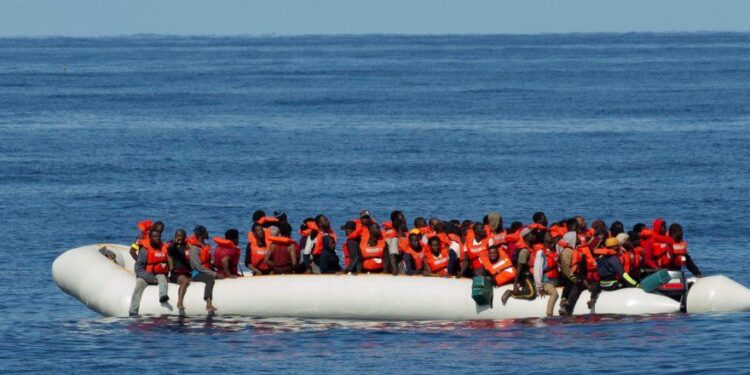The recently forged Italy-Libya migration pact faces intense scrutiny amid escalating violence along key transit routes, as reports emerge of armed clashes disrupting migrant flows. The agreement, aimed at curbing irregular migration from Libya to Europe, is coming under pressure as security deteriorates, raising urgent questions about its effectiveness and humanitarian impact. This developing situation sheds light on the complex dynamics at play in the Mediterranean migration crisis, with policymakers and rights groups watching closely.
Italy Libya Migration Agreement Faces Renewed Criticism Amid Rising Violence
The recent surge in violent clashes within Libyan territories has intensified scrutiny over the longstanding migration agreement between Italy and Libya. Critics argue the pact, aimed at curbing migrant flows across the Mediterranean, inadvertently contributes to human rights violations by empowering militias involved in detaining and repelling refugees. Meanwhile, data suggests a worrying uptick in incidents affecting migrants caught in conflict zones controlled by rival factions. Humanitarian organizations emphasize the urgent need for transparency and accountability in Libyan detention centers, many of which have become scenes of armed confrontations.
Key concerns raised include:
- Escalating violence directly impacting migrant safety
- Lack of independent monitoring in detention facilities
- Displacement of migrants amid intensified military activities
| Metric | 2023 | 2024 (Q1) |
|---|---|---|
| Reported migrant clashes | 120 | 85 |
| Detention center incidents | 45 | 70 |
| Coast guard interceptions | 1,500 | 1,200 |
Human Rights Concerns Emerge Over Treatment of Migrants at Libyan Detention Centers
Recent reports have brought to light alarming conditions faced by migrants detained in Libyan centers, sparking international outcry over possible violations of human rights. Witnesses and humanitarian organizations describe overcrowded facilities where detainees endure physical abuse, inadequate medical care, and limited access to food and water. These revelations cast a shadow over the Italy-Libya migration cooperation, originally designed to stem the flow of migrants crossing the Mediterranean Sea.
Despite official claims of improved management and oversight, the reality on the ground paints a starkly different picture. Human rights groups urge Italy and its European partners to reconsider their engagement with Libyan authorities, emphasizing the urgent need for transparent monitoring and accountability mechanisms. Key concerns include:
- Systematic mistreatment: Reports of beatings and forced labor within detention centers
- Legal limbo: Prolonged detention without access to fair asylum procedures
- Health risks: Outbreaks of diseases due to unsanitary conditions
The complexity of the situation is highlighted by competing priorities: while Italy aims to reduce migrant arrivals, critics argue that current policies exacerbate human suffering and contribute to instability within Libya. An overview of the situation:
| Aspect | Status | Impact |
|---|---|---|
| Detention Facility Conditions | Poor, overcrowded | High risk of abuse & illness |
| Legal Support | Scarce availability | Limited access to asylum rights |
| International Oversight | Minimal enforcement | Challenges in accountability |
Moving forward, the international community faces increasing pressure to ensure that migration policies uphold fundamental human rights standards rather than compromise them for political objectives.
Experts Call for Transparent Oversight and International Cooperation to Reform Migration Policies
Calls for transparent oversight and enhanced international cooperation have intensified as experts dissect the complexities surrounding the Italy-Libya migration agreement. Analysts warn that without stringent accountability mechanisms, the partnership risks enabling human rights violations under the guise of border control. Key stakeholders emphasize the urgent need to establish clear monitoring frameworks that guarantee migrants’ protection while balancing national security concerns.
Among the proposed reforms, experts highlight:
- Independent auditing of detention conditions in Libya
- Joint international task forces to oversee migration flows
- Regular reporting obligations with public accessibility
- Enhanced support for refugees through multilateral humanitarian aid
The geopolitical implications further stress the importance of collaborative responses. Italy’s enforcement efforts have faced criticism as sporadic violence escalates at migration transit points. Experts argue that unilateral approaches are insufficient to address the root causes driving displacement, urging policymakers to adopt a holistic perspective encompassing social, economic, and security dimensions.
| Reform Aspect | Expected Benefit | Challenges |
|---|---|---|
| Transparent Detention Audits | Increased accountability and rights protection | Access limitations in conflict zones |
| Multilateral Task Forces | Coordinated border management | Diplomatic disagreements and resource allocation |
| Public Reporting | Enhanced trust and policy evaluation | Political resistance and data sensitivity |
In Summary
As tensions escalate and the Italy-Libya migration pact comes under increasing scrutiny, the unfolding conflict underscores the complex and volatile nature of migration management in the Mediterranean. With lives at stake and political stakes rising, regional and international actors face mounting pressure to address both the humanitarian and security challenges posed by the agreement. The situation remains fluid, with developments continuing to draw global attention to the fragile balance between cooperation and confrontation in one of the world’s most contentious migration corridors.
















